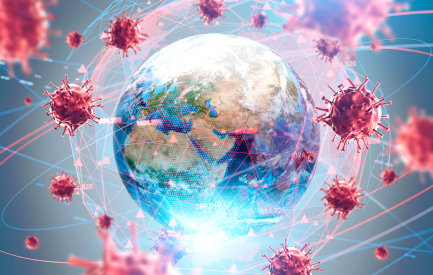As the COVID-19 virus spreads around the globe, criminals are looking for ways to exploit the fear and uncertainty surrounding the virus to generate profits.
Key crimes types to look out for during this period include counterfeit medical products, fraud and cybercrime.
On its website, INTERPOL provides insight into these threats, how to stay safe, and how it is supporting police worldwide to combat criminals looking to profit from the coronavirus pandemic.
Counterfeit medical supplies
Criminals are exploiting the rapidly increasing demand for supplies such as masks, gloves, wipes and sanitisers through selling low quality or counterfeit products.
Fake “coronavirus medicines” are being offered, which have been found to contain harmful substances such as rat poison. Even where genuine medicines are sold which are used to treat other diseases, they may have been stolen and badly stored, making them ineffective or contaminated.
As people are stocking up on groceries and other essential items, they are also looking to stock up on regular medical supplies. This has created an opportunity for criminals to sell a wide range of counterfeit medical products, from contact lenses to condoms.
Under-resourced hospitals and medical facilities are also being targeted with counterfeit products such as syringes and surgical instruments.
The trade in fake medical products has also been linked to credit card fraud and identity theft, with criminals asking for sensitive personal information as part of the process.
INTERPOL provides some useful tips on how to spot fake medical products and take care when buying medicines including:
- Do not buy medicines from unknown websites or in a marketplace.
- Only buy medicine that has been prescribed by your doctor or healthcare professional. Ensure when purchasing online that it is required to present your prescription.
- Watch out for “too good to be true” promises.
- Be weary of substantially cheaper prices.
- Do not reveal any personal information beyond appropriate medical details.
- Compare the medicines against your usual prescription – does it contain different amounts of key ingredients, look different or have spelling errors on the packaging?
Cybercrime
During this time of crisis, individuals and businesses may let their guard down to cyber threats due to preoccupation with the immediate threats posed by the coronavirus.
Cybercriminals are taking advantage of this with a number of key cybercrime types:
Malicious domains
Cybercriminals are registering website domains which include the words “covid 19”, “coronavirus” and related terms to carry out phishing campaigns, spread malware or to compromise Command and Control servers.
Malware
Criminals are exploiting the fact that everybody is searching out the latest news on COVID-19, embedding malware in interactive coronavirus maps, websites and spam emails.
Ransomware
Hospitals, medical centres and public institutions are being targeted for ransomware attacks. INTERPOL states that “since they are overwhelmed with the health crisis and cannot afford to be locked out of their systems, the criminals believe they are likely to pay the ransom.”
With an increasing number of people working or studying from home, INTERPOL also provides a cyber safety checklist which includes:
- Back up online and offline files regularly and securely.
- Strengthen your home network.
- Use strong passwords.
- Keep your software updated.
- Manage social media profiles.
- Check privacy and security settings.
- Avoid opening and delete suspicious emails or attachments.
Financial crime
Criminals are trying to cash in on the coronavirus outbreak in any way they can. In addition to selling counterfeit medical supplies online, other key financial crime types to look out for include:
Phone fraud
Fraudsters may call victims pretending to work for a hospital or medical clinic, claiming that a relative of the victim has fallen sick with the virus and requesting payments for medical treatment. Criminals may also impersonate government officials or law enforcement officers demanding confidential information or payments.
Phishing scams
Scammers are sending phishing emails designed to steal victims’ money or personal identification information, which can then be used to facilitate financial crimes. These scams often involve the criminal impersonating national or global health authorities, or including attachments or links which contain malware.
INTERPOL’s global support
INTERPOL is working hard to support global law enforcement as they face these unprecedented challenges.
Key to this support is I-24/7, INTERPOL’s secure global communications system, along with its colour-coded system of Notices that enables countries to share alerts and requests for information worldwide.
INTERPOL has specialised units which are monitoring the latest trends and developments in how criminals are looking to take advantage of the COVID-19 crisis, sharing this insight with the law enforcement community worldwide.
It has also published international guidelines in order to enhance the safety and effectiveness of law enforcement and first responder support in the context of the COVID-19 pandemic. The guidelines cover a range of scenarios including border control, maintaining public order, and assisting national health authorities in identifying coronavirus cases and their origin.



